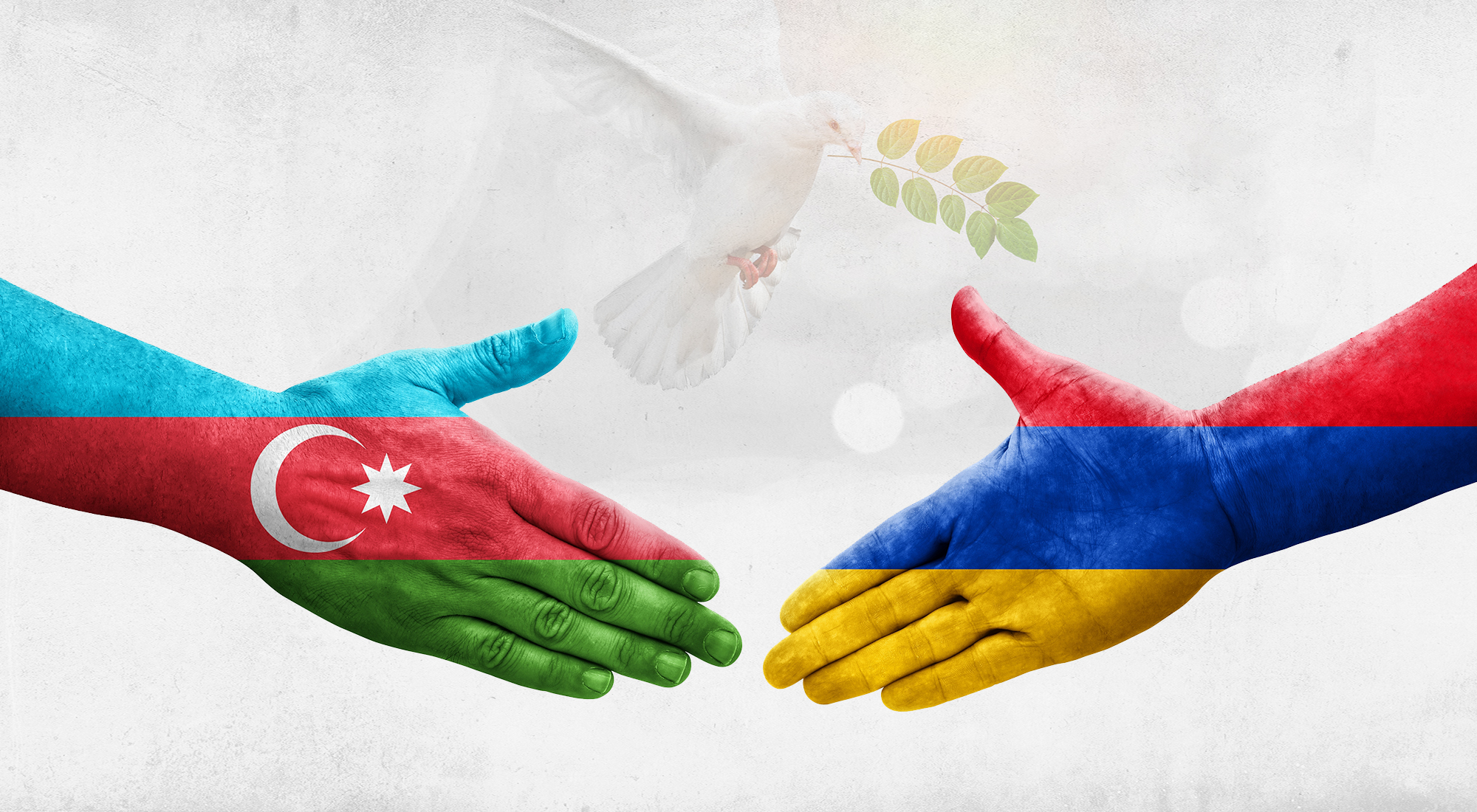Trends Research and Advisory has released a new study entitled “Tangible Progress in the South Caucasus: Armenia and Azerbaijan Itch Closer to Normalizing Relations.” The study was conducted by Dr. Emil Avdaliani, Professor of international relations at European University in Tbilisi, Georgia. The study explained that the recent political moves indicate that tensions between the two neighbours around Armenia’s southernmost province of Syunik have mostly subsided.
The study reviews the recent positive developments in relations between Armenia and Azerbaijan, which suggest that the two countries are closer a historic peace agreement. The study points to several factors pushing this drive, including a significant reduction in differences between the two countries since the fall of Nagorno-Karabakh in September 2023. The Armenian population displaced from the region is no longer a major obstacle to bilateral negotiations. Moreover, the recent political moves indicate that tensions between the two neighbours around Armenia’s southernmost province of Syunik have mostly subsided.
The study showed Armenia’s desire to limit its security dependence on Russia and facilitate ongoing rapprochement with Turkey. Baku has become more circumspect in its rhetoric regarding the so-called Zangezur corridor. Iran and Azerbaijan signed a new railway agreement that would allow transit from Azerbaijan proper to its exclave of Nakhchivan via Iranian territory. The study indicated that this proposed land connection is beneficial to all major actors in the region and would pave the way for the peace agreement between Baku and Yerevan.
The study indicated that the two countries have agreed to recognize each other’s territorial integrity within the borders of what once constituted Armenian and Azerbaijani Soviet Socialist republics. Another area where the two countries’ interests overlap is the opening of transport lines such as roads, railways, and a transit route. All of these developments shall promote the move towards peace in the region.
The study foresees that a major peace treaty may be reached tentatively in the first half of 2024. Yet, it will not be a comprehensive one. Instead, the agreement will be more of a roadmap for future steps aiming at full normalization of relations, a process likely drawn out in months, if not years. This poses numerous questions as to the longevity of the peace process. Indeed, the dynamics on the ground indicate that despite the progress, the militarization of the South Caucasus will only continue.

Trends study explores relations between two South Caucasus Rivals Armenia and Azerbaijan are closer to normalizing relations
28 Apr 2024


